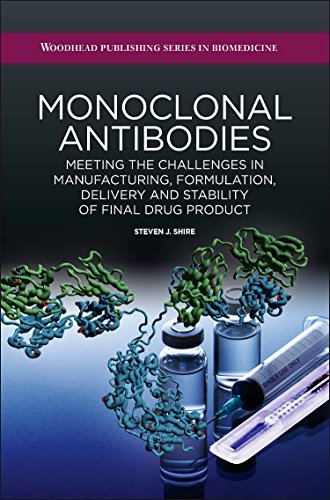

Most ebook files are in PDF format, so you can easily read them using various software such as Foxit Reader or directly on the Google Chrome browser.
Some ebook files are released by publishers in other formats such as .awz, .mobi, .epub, .fb2, etc. You may need to install specific software to read these formats on mobile/PC, such as Calibre.
Please read the tutorial at this link: https://ebookbell.com/faq
We offer FREE conversion to the popular formats you request; however, this may take some time. Therefore, right after payment, please email us, and we will try to provide the service as quickly as possible.
For some exceptional file formats or broken links (if any), please refrain from opening any disputes. Instead, email us first, and we will try to assist within a maximum of 6 hours.
EbookBell Team

5.0
58 reviewsMonoclonal antibodies (MAbs) are currently the major class of protein bio therapeutic being developed by biotechnology and pharmaceutical companies. Monoclonal Antibodiesdiscusses the challenges and issues revolving around development of a monoclonal antibody produced by recombinant DNA technology into a therapeutic agent.This book covers downstream processing which includes design of processes to manufacture the formulation, formulation design, fill and finish into closure systems and routes of administration. The characterization of the final drug product is covered where the use of biophysical methods combined with genetic engineering is used to understand the solution properties of the formulation. The latter has become very important since many indications such as arthritis and asthma require the development of formulations for subcutaneous delivery (SC). The development of formulations for IV delivery is also important and comes with a different set of challenges. The challenges and strategies that can overcome these limitations are discussed in this book, starting with an introduction to these issues, followed by chapters detailing strategies to deal with them. Subsequent chapters explore the processing and storage of mAbs, development of delivery device technologies and conclude with a chapter on the future of mAbs in therapeutic remedies.